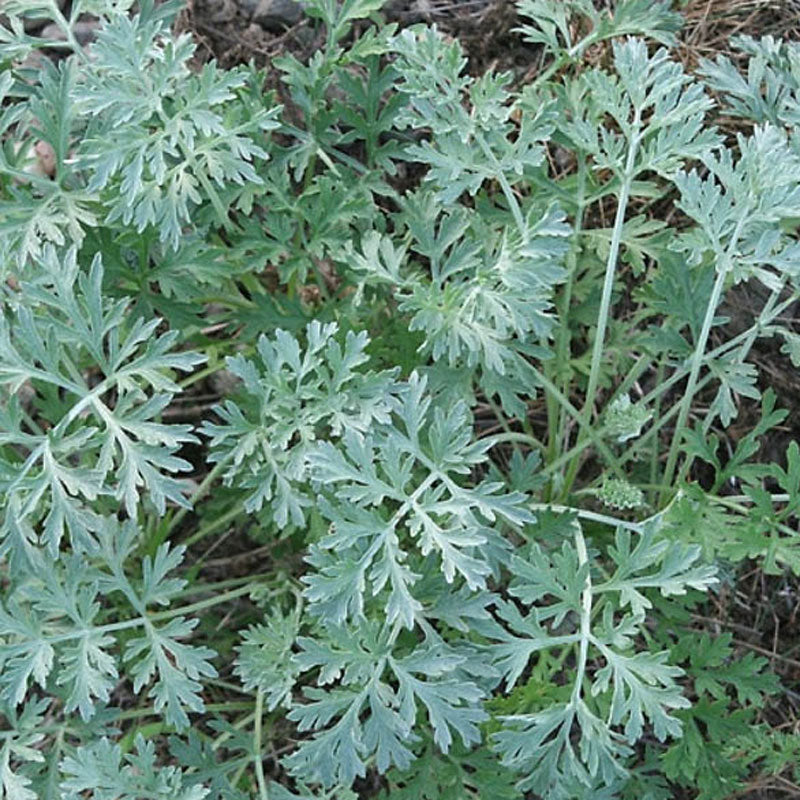

Wormwood (Artemisia absinthium)
- $14.00 CAD
- $14.00 CAD
- Unit price
- per
50g, 100g, 250g
Couldn't load pickup availability
Parts used: Herb and leaves
Properties
Alterative, anthelmintic, febrifuge, stomachic
Primary nutrients
Calcium, cobalt, manganese, potassium, sodium, tin, vitamins C and B-complex
Herbalists value wormwood as a stimulant to promote sweating and improve digestion. It can expel worms and improve liver function.
Wormwood has been used for poor circulation, rheumatism, fevers, colds and jaundice. Herbalists have also recommended wormwood for digestion, stomach acidity and constipation. Wormwood may help stimulate sweating in cases of dry fevers. It has also been used to expel worms, promote menstruation, stimulate uterine circulation, relieve menstrual cramps and as an insect repellent. Wormwood can be used externally to reduce hair loss. It is usually recommended to be used for only short periods of time and is not for children.
The anthelmintic activity of wormwood is thought to be due to lactones. There may also be some antimalarial properties in wormwood. There is evidence of the thujone content being able to stun roundworms, allowing them to be expelled through normal excretory functions.
People with seizure disorders and pregnant should not use wormwood.
Primary Applications
Constipation
Cramps, menstrual
Debility
Digestion
Fever
Inflammation, GI tract
Jaundice
Liver problems
Menstruation, lack of
Stomach problems
Worms
Secondary Applications
Appetite problems
Blood circulation
Diarrhea
Earaches
Edema
Female disorders
Gallbladder
Gout
Indigestion
Insect repellent
Kidney ailments
Nausea
Neuralgia
Obesity
Poisons
Rheumatism
Swelling
50g, 100g, 250g
RELATED PRODUCTS
- Choosing a selection results in a full page refresh.


